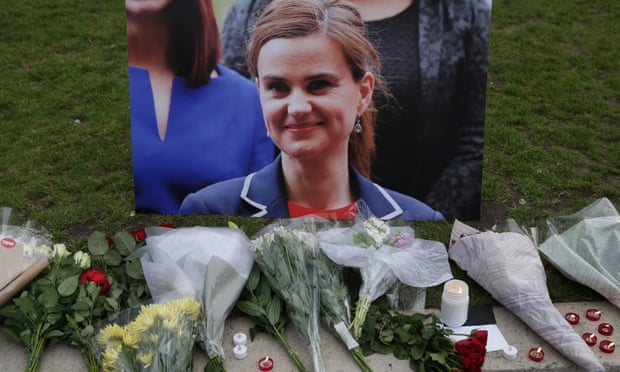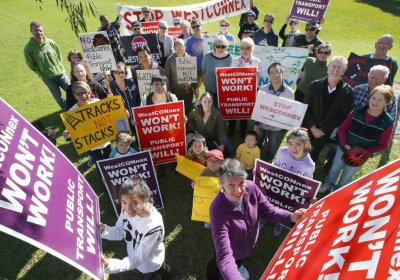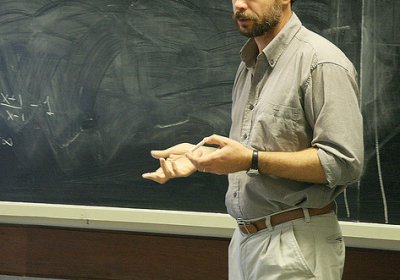“Oil didn’t wreck Venezuela’s economy, socialism did.” That’s what Pascal-Emmanuel Gobry, of the Washington-based conservative think tank Ethics and Public Policy Center, wrote earlier this year in his reflection on Venezuela’s deepening economic crisis.
Gobry, a prolific writer for Forbes and the Wall Street Journal, criticised Venezuelan analysts who scapegoat oil, even though he recognised that declining oil prices have aggravated the nation’s difficulties.
“The culprit is clear and obvious,” Golbry contends. “The problem is Venezuela's authoritarian socialism.”
1098
There's a war going on — the class war. Funnily enough, the only time you hear politicians using that term is as an epithet, not as a descriptor for the daily life of the overwhelming majority of society.
An example: Prime Minister Malcolm Turnbull accused Labor leader Bill Shorten of declaring war on business and waging a “class war” for making the modest suggestion that the rich should pay a fairer share of tax.
Animal rights activist Carolyn Drew was charged with trespassing on Territory land during the 2014 kangaroo cull. Almost two years later, the ACT Magistrates Court rejected the prosecution's allegations and threw out the case on June 9.
Drew, from Animal Liberation ACT, was charged with “Trespass on Territory Land” under a 1932 Act.
Outside the court she said: “All the prosecution had to prove was that there was an authorised 'no trespass' sign on the land. Not only did they fail to prove the sign was authorised, but they couldn't even prove it was there at all.
I moved to Perth in June last year from a small, rural town in central Pennsylvania. There I witnessed first-hand the impact of the “fracking” boom — the rapid exploitation of the unconventional gas resources in the Marcellus shale play.
It hit rural Pennsylvania particularly hard because it is economically depressed, struggling to make ends meet by farming and what's left of manufacturing that has not been outsourced to China, Mexico, and other exploitable labour pools.
Protesters gathered outside the Four Seasons Hotel on June 15 to oppose the controversial WestConnex private tollway, which is being forced through by the Coalition state government at a massive cost to New South Wales taxpayers. The hotel was the site of an Infrastructure Conference, addressed by Premier Mike Baird, federal Labor opposition infrastructure spokesperson Anthony Albanese and other political and urban development leaders.
 About 20 protesters demonstrated in front of the Melbourne Department of Immigration and Border Protection (DIBP) on June 6 over allegations of asylum seeker mistreatment. Police presence was described by observers as extremely heavy, ranging from two dozen to fifty officers.
About 20 protesters demonstrated in front of the Melbourne Department of Immigration and Border Protection (DIBP) on June 6 over allegations of asylum seeker mistreatment. Police presence was described by observers as extremely heavy, ranging from two dozen to fifty officers.
 About 20 protesters demonstrated in front of the Melbourne Department of Immigration and Border Protection (DIBP) on June 6 over allegations of asylum seeker mistreatment. Police presence was described by observers as extremely heavy, ranging from two dozen to fifty officers.
About 20 protesters demonstrated in front of the Melbourne Department of Immigration and Border Protection (DIBP) on June 6 over allegations of asylum seeker mistreatment. Police presence was described by observers as extremely heavy, ranging from two dozen to fifty officers.
Earlier this month, Department of Employment figures about the government's remote Work for the Dole scheme proved what critics have known for some time: the policy is failing. In Arnhem Land, people are buying less food since tough Work for the Dole penalties were introduced.
 British Labour MP Jo Cox, who was murdered by an apparent fascist on June 16, was a strong advocate for refugee rights.
Several non-profit groups that used to work closely with her and the refugees for whom she advocated immediately expressed their sorrow and praised her commitment to human dignity in Britain and abroad.
British Labour MP Jo Cox, who was murdered by an apparent fascist on June 16, was a strong advocate for refugee rights.
Several non-profit groups that used to work closely with her and the refugees for whom she advocated immediately expressed their sorrow and praised her commitment to human dignity in Britain and abroad.
 About 20 protesters demonstrated in front of the Melbourne Department of Immigration and Border Protection (DIBP) on June 6 over allegations of asylum seeker mistreatment. Police presence was described by observers as extremely heavy, ranging from two dozen to fifty officers.
About 20 protesters demonstrated in front of the Melbourne Department of Immigration and Border Protection (DIBP) on June 6 over allegations of asylum seeker mistreatment. Police presence was described by observers as extremely heavy, ranging from two dozen to fifty officers.
Teaching is one of the lowest-paid professions and casual relief teachers (CRTs) are among the most marginalised and exploited workers in Victoria.
Our daily pay rate is $293. Think that sounds good? Well, there are about 200 teaching days a year. If we were to work every one of those days, we would still earn less than $60,000 a year — that is the maximum pay we can expect, after a minimum of four years at university.
But we are emergency teachers; we can expect to work, at most, about 100 days. That is less than $30,000 a year.
The Western Downs Alliance has started legal proceedings to challenge federal environment minister Greg Hunt's approval of 6100 coal seam gas wells in Queensland. The Santos GLNG Gas Field Development Expansion covers almost 1 million hectares of land, from Roma east to Taroom and Wandoan, and north towards Rolleston.
- Previous page
- Page 2
- Next page







